With CBD now well-established and widely known, other cannabinoids are getting a chance to shine – one of them is cannabinol or CBN. A secondary or minor cannabinoid from the hemp plant, CBN oil therapeutic potential is being talked up, and rightly so.
Cannabinol (CBN) is commonly regarded as a mildly psychoactive cannabinoid and is a derivative of THC, the primary psychotropic substance in cannabis. CBN was first identified in the late 1800s, before any other cannabinoid. CBN oil has emerged as a popular natural sleep remedy but has no approved medical uses.
In this post, I want to clear up any confusion and misconceptions about CBN oil. In my experience, CBN is often misunderstood compared to CBD and other cannabinoids. So, let’s explore CBN, how it interacts with the body, and whether it works.
1. NuLeaf Naturals – Full-Spectrum CBN Oil
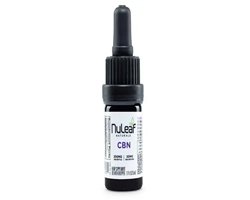
Relax and unwind best with soothing full-spectrum CBN oil from NuLeaf Naturals. Packed with cannabinoids and terpenes thanks to the proprietary hemp formula, this CBN oil effectively promotes the synergistic entourage effect.
NuLeaf Naturals has become an industry leader, and this tincture boasts unrivaled potency and safety. It’s rich in minor cannabinoids and made with a unique, secret strain of US-grown, non-GMO hemp.
Third-party tested with less than 0.3% THC, NuLeaf’s CBN Oil is made following the FDA’s strict Good Manufacturing Practices.
Available tinctures: 300mg (60mg/ml), 900mg (60mg/ml), 1800mg (60mg/ml)
2. Active CBD Oil Tincture – Water Soluble CBN Oil (150mg)
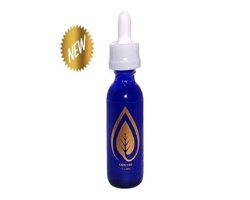
Banish your sleeping troubles for good with this water-soluble CBN tincture. Active CBD Oil uses a broad-spectrum hemp extract with zero THC, making it ideal if you’re concerned about failing drug tests. The unflavored oil can be taken under the tongue or in food or drink.
While 150mg of CBG and 5mg per serving may not sound like a lot, the water-soluble nature of this tincture provides a big bioavailability boost and a higher absorption rate. Active CBD Oil’s natural CBN tincture contains non-GMO hemp and is third-party tested and approved.
3. CBD American Shaman – CBNight Water Soluble CBN Oil
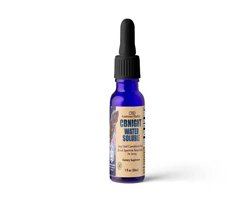
Much thought has gone into the CBNight oil from American Shaman – and the finished product is mighty impressive. They have combined a broad-spectrum hemp extract with MCT-rich coconut oil and an array of relaxing terpenes like linalool to create the ultimate tincture for sleep.
Each 1ml serving delivers 4mg of cannabinoids, which is plenty given that American Shaman utilizes revolutionary nanotechnology. This water-soluble CBN oil is made entirely in the United States, contains less than 0.3% THC, and has passed third-party tests.
Available tinctures: Sample size (5ml), Regular size (30ml)
What is CBN?

CBN is a cannabinoid found in the cannabis plant. Generally present in trace amounts, CBN is known as a secondary or minor cannabinoid. More than 120 cannabinoids have been identified in cannabis, with these compounds mainly influencing the endocannabinoid system (ECS).
Studies show that CBN is a derivative of THC, the primary psychoactive component of cannabis. While fresh cannabis typically contains tiny quantities of CBN, this amount increases as THCa degrades into CBNa, due to oxidation and light degradation.
CBNa, or cannabinoid acid, is the acidic and preactivated version of CBN. Decarboxylation turns CBNa into the more familiar CBN – however, both compounds produce similar effects.
Dietary hemp supplements rich in CBN are often marketed as natural sleeping agents. CBN has no approved medical uses but is increasingly on scientists’ radar. Early research suggests CBN may have antibacterial and anti-inflammatory effects and neuroprotective properties.
Is CBN Psychoactive?
Curiously, the jury is out on whether CBN is psychotropic or not. You would think that determining whether a substance has mind-altering effects or not would be easy. However, the existing research on CBN’s psychoactive status is conflicting.
CBN is a partial agonist of the CB1 and CB2 receptors in the ECS. In that sense, CBN is similar to THC. But while THC binds with CB1 receptors in the central nervous system to produce psychoactive effects, CBN has a much lower affinity to these receptors. This explains why CBN does not generate classic marijuana effects despite linking up with CB1 receptors in the same way as THC.
Is CBN Legal?
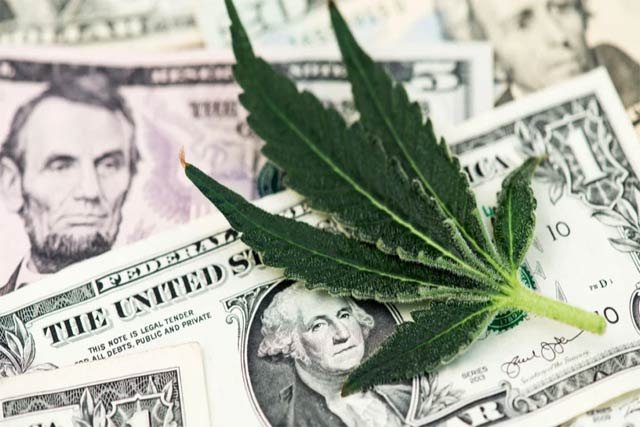
CBN is legal in the United States, but only if derived from the hemp plant. Cannabis-derived CBN is still a Schedule 1 drug under the Controlled Substances Act. Hemp-derived CBN became legal in 2018 after Congress passed the Agriculture Improvement Act, or the Farm Bill.
Under federal law, Cannabis Sativa L. plants with less than 0.3% THC are classified as “hemp”. In passing the 2018 Farm Bill, the federal government legalized hemp and its cannabinoids, including CBN.
With no limitations on how much CBN a hemp product can contain, hemp companies are now manufacturing highly concentrated CBN products, such as gummies and e-liquids. These products can legally be marketed as dietary supplements.
5 Possible Benefits of CBN Oil
Unfortunately, research on cannabinoids is lagging as the consequences of decades of prohibition continue to linger. We know more about CBD and THC nowadays and the endocannabinoid system in which they work. However, researchers have barely scratched the surface of CBN and other minor cannabinoids.
However, there are a few studies to draw upon, which hint at the possible benefits of CBN and, therefore, CBN oil. I hope this section is informative and educational, but it should not be taken as medical advice.
Anti-Inflammatory Effects

CBN has exhibited anti-inflammatory properties in a model of acute inflammation in rats, raising hopes the cannabinoid could be used to treat collagen-induced arthritis. Several cannabinoids have anti-inflammatory effects, as clarified in this paper published in the FASEB journal.
CBN’s anti-inflammatory properties may come from its actions on CB2 receptors, which have a direct link to the immune system. Sublingual absorption of CBN oil may offer rapid relief from acute inflammation, while the topical application may offer localized relief.
Neuroprotective properties
Many cannabinoids are promising neuroprotectants, including CBN. Indeed, the US government holds an active patent on CBN and all other cannabinoids as neuroprotectants. That’s quite the contradiction given that the federal government classifies cannabis and its derivatives as Schedule 1 drugs with “no medical use”.
In 2005, a paper was published demonstrating the neuroprotective potential of CBN in rats. The researchers found that CBN and other cannabinoids may help to slow the onset of amyotrophic lateral sclerosis (ALS). Also known as Lou Gehrig’s disease, ALS is a neurodegenerative disease that causes a loss of motor control.
There’s no guarantee that CBN’s neuroprotective effects in rats also occur in humans. However, rodents have similar brain structures to humans and are a good starting point for neurological research.
Promotes Sleep

Many people swear by CBN’s benefits for sleep, and several hemp companies now manufacture CBN supplements intended for that purpose. But despite the popularity of CBN for sleep and the wealth of positive anecdotes, hardly any research has been conducted.
A small study published in Pharmacology in 1975 suggested that CBN has sedative properties, which are enhanced when CBN is taken with THC. However, this study only involved five male participants, so it’s impossible to draw any conclusions.
That said, it’s unlikely CBN oil for sleep would have taken off like it has if it didn’t work! Considering the findings in the 1975 study, full-spectrum CBN products may be more effective because of the trace levels of THC.
It may Reduce Glaucoma Symptoms
Glaucoma is a common, hereditary eye condition where the optic nerve becomes damaged. The optic nerve connects the eye to the brain typically due to a build-up of fluid in the front of the eye, leading to intraocular pressure.
Thankfully, studies show that CBN may help to relieve intraocular pressure. Experimental Eye Research published a paper in 1984 demonstrating that a 9-day CBN treatment program alleviates intraocular pressure in cats.
Researchers are optimistic that a CBN-based eye drop formulation could eventually be used to treat glaucoma. However, while the preclinical research is going well, we are still some way off CBN being approved for medical use.
Antibacterial Properties

The discovery that cannabinoids have antibacterial properties could save millions of lives in the decades to come. Antibiotics were the biggest medical advance in the 20th century, but the emergence of antibiotic-resistant bacteria and a lack of new antibiotic drugs is a major worry.
But CBN – along with CBD, THC, CBG, and likely other cannabinoids – has shown stunning antibiotic potential in early studies. It’s even effective against the scary hospital superbug MRSA.
A 2008 paper in the Journal of Natural Products noted that we don’t yet know why cannabinoids have antibacterial effects. However, researchers suggest these compounds are most effective when taken together.
How to Take CBN Oil
I prefer tincture oils over hemp-based products because you can take them in different ways, with each offering a unique experience. Let’s explore the benefits of sublingual absorption, oral consumption, and topical administration.
Sublingually (under the tongue)
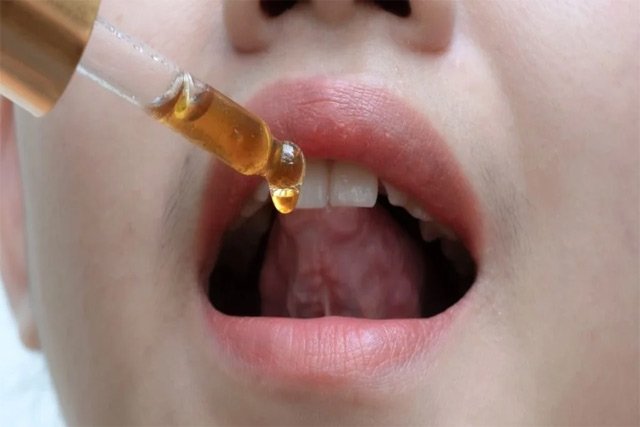
The stand-out method of taking CBN oil, sublingual absorption, is discreet, convenient, and offers fast relief. CBN starts working in mere minutes when consumed sublingually, with the effects rapidly intensifying.
If you have difficulties getting to sleep, the rapid onset of relaxation and sedation is perfect. Fill a dropper or two of CBN oil and apply under the tongue – hold for at least 30 seconds to maximize absorption. The sublingual glands deliver CBN directly into the bloodstream, bypassing the first-pass metabolism.
Orally (in foods and beverages)
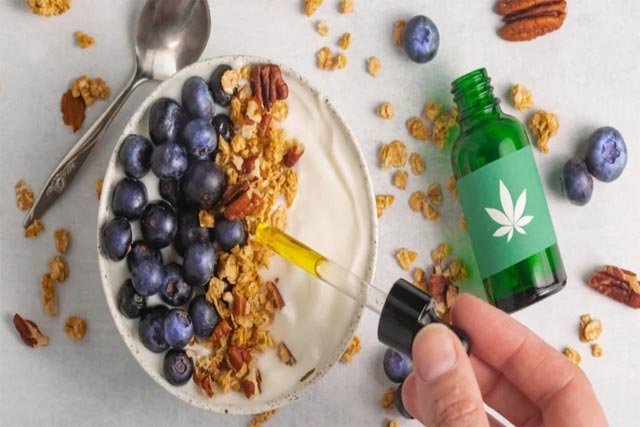
Taking CBN oil with food or drink provides long-lasting effects, which could be helpful if you often wake up in the middle of the night. The slower absorption of CBN into your bloodstream means the effects don’t kick in as quickly but will last throughout the night.
You could blend some CBN oil with a cup of hot chocolate an hour or so before bedtime. Mixing CBN with a beverage also hides the natural, earthy taste of the tincture. You should start feeling sleepy around 45 minutes to an hour after consumption.
Topically
While uncommon, you can apply CBN tinctures to the skin for anti-inflammatory effects. However, this method does not lead to sedative effects, so it cannot be used for sleep.
For inflammation relief, administering CBN to the affected area is sometimes more effective. Activating CB2 receptors in a specific region provides targeted relief rather than system-wide effects. Mix CBN oil with another topical product for a more cost-effective experience.
Side Effects of CBN Oil
Much is still unknown about the side effects of CBN oil due to a general lack of knowledge on the substance. That said, since CBN is likely a sedative, we can assume it causes drowsiness and tiredness, especially if taken in high dosages.
CBN may also interfere with the metabolization of some prescription drugs. Studies show that CBD blocks activity among enzymes in the cytochrome P450 system, affecting how we respond to prescription antidepressants, antihistamines, beta-blockers, and more.
Since CBN is also a cannabinoid, it may similarly affect these enzymes. Proceed with caution if you plan on mixing CBN with prescription drugs.
Does CBN Show Up on a Drug Test?

No, CBN does not show up on a drug test. Even if CBN is mildly psychotropic as some studies indicate, drug tests only look for the presence of tetrahydrocannabinol, like THC and delta-8.
However, full-spectrum CBN products do contain trace amounts of THC, so regular consumption could pose a problem. Likewise, tinctures combining delta-8 with CBN could also result in a failed drug test. If you have reservations about drug tests, shop for broad-spectrum CBN products with no THC.




